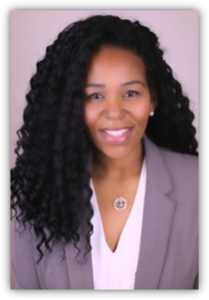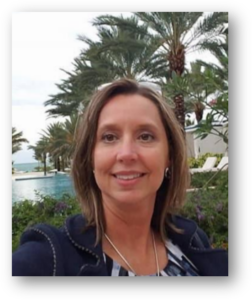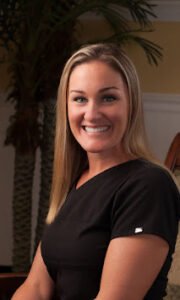Posts
Bridging Gaps in Care
Partnering to Expand Access to Oral Health Across Florida
Program Description:
Join us for this informative webinar, which highlights collaborative efforts across Florida aimed at expanding access to preventive oral health care in underserved communities.
This session, featuring speakers from Liberty Dental Plan and the Florida Baptist Convention Mobile Dental Unit, will showcase innovative outreach initiatives, dynamic community partnerships, and the collective impact of delivering care directly to those who need it most.
Key Topics Include:
- Community-based outreach models serving underserved populations
- The role of mobile dental services in improving access to care
- Dental plan-driven strategies focused on education and prevention
- The power of collaborative, cross-sector partnerships
Attendees Will Gain:
- Insight into effective outreach strategies that promote oral health equity
- Real-world examples of successful partnerships across Florida communities
- Practical, actionable approaches to engaging vulnerable populations
- Inspiration for professionals looking to build or support community-based dental programs

Stefanie Gaspard is a registered dental hygienist and serves as the Community External Affairs Liaison for Liberty Dental Plan. In this role, she works to bridge the gap between oral health care and access by promoting preventive dental education and increasing awareness across Florida’s communities. With experience in diverse clinical and outreach setting including community-based programs, school-based initiatives, and an overseas military assignment—Stefanie brings a well-rounded perspective to her work.
She holds a bachelor’s degree in health science and a certificate in Medical Business Management. A highlight of her career has been connecting with patients and helping them discover the value of their oral health as part of their overall well-being. She is proud to be part of a team that is dedicated to advocating for underserved populations and advancing inclusion within oral health care systems. Outside of her professional work, Stefanie enjoys staying active, traveling with family and friends, and immersing herself in new cultures. These experiences continue to fuel her passion for health equity and community centered care.

Missy White is a registered dental hygienist who serves as Volunteer Consultant and Community Engagement Manager at CivCOM in Marion County, where she plays a key role in supporting the Tobacco Prevention Program as part of the Bureau of Tobacco-Free Florida efforts. She acts as a liaison for both the Students Working Against Tobacco (SWAT) and the Tobacco-Free Partnership of Marion County, leading initiatives to reduce nicotine addiction in the community.
With a career spanning over three decades, Missy is also a seasoned dental hygienist, having worked in the field since 1988. She dedicates her time as a volunteer Dental Hygiene Consultant for the Florida Baptist Convention Mobile Dental Ministry Unit (MDMU), providing preventive care to uninsured and low-income families across the state of Florida and training local churches and medical clinics to host the Mobile Dental Ministry Unit.
In addition to her professional achievements, Missy is a proud mother of two adult children and a pastor’s wife. Outside of work, she enjoys cooking, traveling, snorkeling, and indulging in her passion for cooking as a self-proclaimed “foodie.”

Dr. Tamara-Kay Tibby received her Doctorate in Dental Medicine from the University of Florida College of Dentistry in 2000. She completed her residency in Pediatric Dentistry at Harvard University School of Dental Medicine. After graduation, she started working at the Palm Beach County Health Department as well as in private practice. Dr. Tibby transitioned from private practice in 2006 and started practicing solely in Public Health.
Shortly upon making this decision, she began pursuing her Masters in Public Health (MPH) at the University of South Florida. This afforded her the opportunity to gain valuable field experience in Panama City, Panama. Dr. Tibby has over 24 years of experience in public health.
She has served as the dental director for community health centers in three different counties in Florida. In these roles she has initiated school and day care based preventative dental programs for low-income children. All these experiences have helped her in the role of Florida Dental Director for Liberty Dental Plan
Dr. Tibby and her family are avid sports fans and especially enjoy watching Gator football, Duke basketball, and the Philadelphia Eagles. Her passion for sports has led her to attend a Super Bowl, NCAA Final Four, NBA Championship game, A World Series Game and several professional tennis tournaments.
What You Need to Know About the New Background Screening Law Webinar
Monday, April 21st, 2025 6:30 - 7:30 PM ET
We’re honored to welcome two highly respected leaders from the Florida Department of Health for a special live virtual presentation covering the newly updated background screening requirements.
This is a must-attend session for anyone seeking clarity and confidence around the changes and how they impact healthcare professionals.
Jessica Nijem
- Chief, Bureau of Health Care Practitioner Regulation
- Past Executive Director to the Florida Board of Dentistry
Responsibilities include Board administration, legislation implementation, and serving as a key liaison to state and national associations.


Traci Zeh
- Executive Director to the Florida Board of Dentistry.
- Administrative Officer of the Board of Dentistry.
Traci plays a critical role in regulatory oversight and administrative coordination, ensuring alignment with current standards and board processes.
- What You’ll Learn:
- Key changes in the background screening law
- What these updates mean for your practice or organization
- Step-by-step guidance on compliance
- Live Q&A: Get your specific questions answered

This is not a continuing education (CE) event, but an informative, interactive webinar designed to support your understanding of the new requirements.
“Don’t miss out! The Florida Dental Hygiene Alliance is hosting another awesome free webinar. Stay tuned!”
Myofunctional Therapy: Crossfit for Above the Neck
Wednesday, April 9, 2025 7:00 - 8:00PM

Ashley Horn, CRDH, BHM
Ashley Horn, born and raised in Palm Beach County, graduated from Palm Beach State College in 2005 with degrees in Dental Hygiene and General Education. She has been working in private dental practice since then and expanded her expertise into Myofunctional Therapy with training from Las Vegas Institute and the Academy of Orafacial Myofunctional Therapy in 2020. Ashley became an adjunct instructor in Palm Beach State College’s Dental Hygiene program in 2021and is the Lead Dental Radiology Lab instructor as of 2024. She is pursuing a Bachelor’s degree in Health Management while balancing her roles as a wife and mother, enjoying long-distance running, paddleboarding, and reading.
Webinar Video Recorded on April 9, 2025
Program Description:
This program delves into the realm of Myofunctional Therapy, likening it to a Crossfit regimen for facial and oral muscles. It begins by explaining what Myofunctional Therapy is, emphasizing its holistic approach to improving muscle function in the facial and oral areas.
Key Points:
- Understanding Myofunctional Therapy: The definition and 4 main goals ( Promote nasal breathing, Correct tongue posture, Improve swallowing patterns, Enhance oral rest posture: Lip seal)
- Identifying who would benefit from Myofunctional Therapy: Signs and symptoms indicating a need for therapy. Target audience: Individuals needing arch expansion prior to orthodontics, Orthodontic retention to prevent relapse, Pre and Post labial and lingual frenectomy removals, active tongue thrust causing abnormal occlusion, patients at risk orcurrently diagnosed with sleep apnea, presence of forward head and neck posture.
- Implementing Myofunctional Therapy into my Practice: Sample Adult Assessment and Treatment Plan. Collaboration with other healthcare professionals (i.e. dentist, orthodontist, speech pathologist) for comprehensive treatment.
- Further Learning and Resources ( AOMT):
Introduction to the Academy of Orafacial Myofunctional Therapy as a comprehensive resource. Educational opportunities, virtual workshops, and certification are offered by AOMT to deepen understanding and practice.
This program is an enlightening introduction to Myofunctional Therapy, providing practitioners with the foundational knowledge needed to start assessments and practical tools to implement it effectively in patient care. Hopefully, it will spark new intrigue and empower participants to continue their learning and professional development in this specialized field.
Keeping Up with Dental Hygiene Portability: What’s Happening Now?

Below is a list of states that have enacted reciprocity or mobility laws. Please refer to each state’s specific laws for a comprehensive understanding of the requirements.
Applicants must have practiced for five years or accumulated 5,000 hours immediately before applying. They must provide affidavits from two licensed dentists or dental hygienists, submit a written statement agreeing to an interview, and pass a jurisprudence exam.
Alaska
Requires 2,500 hours of practice five years before the application and affidavits from three licensed dental professionals verifying clinical experience. Applicants must also complete 30 hours of continuing education within the last three years.
Arizona
Mandates a minimum of 1,000 hours of practice within the two years before application, along with clinical exam documentation and a jurisprudence exam.
Arkansas
Requires five years of experience, recommendation letters from two dentists, and a jurisprudence exam.
California
Candidates must have worked 750 hours yearly for five years in clinical practice or full-time faculty in an accredited dental hygiene program. Those with only three years of practice may qualify under specific employment contracts. Additional certifications in soft tissue curettage, nitrous oxide, oxygen administration, local anesthesia, and radiation safety, along with 25 hours of continuing education, are required.
Colorado
Requires active practice or teaching for at least 300 hours per year for at least one of the last three years. Applicants must carry professional liability insurance and disclose any disciplinary actions.
Connecticut
It does not list specific practice years but ensures that the applicant’s previous state licensing requirements are at least as stringent as Connecticut’s.
The District of Columbia
It may require three years of experience and at least 150 hours of active practice before applying. Applicants must submit certified letters of good standing from all previously licensed states, certification in local anesthesia and nitrous oxide administration, and pass the DC Dental Law Examination.
Delaware
Applicants may need three years of experience or at least 150 hours of active practice. They must also pass a jurisprudence exam and provide a letter of good standing.
Florida
It does not require a specific number of practice years but mandates that applicants have worked for at least three years in the four years before submission. They must hold an active, unencumbered license from another state, have a passing licensure exam, and submit fingerprints for a background check.
Georgia
Requires two years of experience with at least 1,000 hours per year in hands-on clinical practice, supported by an employment affidavit and a jurisprudence exam.
Hawaii
It mandates 1,000 hours per year for the past three years and restricts practice to employment within eligible organizations. An annual renewal and an employer letter are required.
Idaho
It requires applicants to have practiced at least 1,000 hours in the two years before applying and to hold an active license in good standing. An interview with the board and a jurisprudence exam may be necessary.
Illinois
It mandates that applicants have actively practiced for three of the past five years. Additional testing or remedial education may be required if this requirement is not met.
Indiana
It requires two years of practice, averaging at least 20 hours per week, supported by three letters of reference, 14 hours of continuing education in the previous two years, and a jurisprudence exam.
Iowa
Applicants must obtain their dental hygiene license through an exam in another state or have three consecutive years of active practice. The state must also recognize Iowa’s licensees.
Kansas
It requires three years of practice before applying and passing a jurisprudence exam. A recommendation letter from a licensed hygienist or dentist and proof of recent continuing education are also necessary.
Kentucky
It mandates five years of practice in the last six years, with qualifications equal to or higher than Kentucky’s requirements, and a jurisprudence exam.
Louisiana
It requires one year of practice or 1,000 hours in the year immediately before applying. Applicants must attend a personal interview, cannot be HIV or HBV positive, and must pass a jurisprudence exam.
Maine
As part of the Dental Hygiene Interstate Compact, it requires three years of practice and a jurisprudence exam.
Maryland
It mandates three years of practice, at least 150 hours per year, and passing the CDCA and jurisprudence exams.
Massachusetts
It requires one year of practice, proof of passing a regional or state clinical exam, 20 CEUs in the past 24 months, a jurisprudence exam, and a physician’s statement.
Michigan
It does not list specific requirements.
Minnesota
It requires 2,000 hours of practice in the past 36 months, an interview, Canadian license eligibility, five hours of infection control within the past five years, two character references, a summary of recent CE courses, and a jurisprudence exam.
Mississippi
It requires five years of practice before applying, along with a jurisprudence exam, a personal interview, and sworn statements from past employers.
Missouri
It mandates two consecutive years of recent practice and disqualifies applicants who have failed a clinical exam or faced disciplinary action.
Montana
It requires 1,000 hours of practice in the past two years, CPR/ACLS/PALS certification, and a jurisprudence exam.
Nebraska
It requires three years of practice, including one year immediately before applying. If the CRDTS exam has not been passed, an oral exam and 15 hours of CE are required.
Nevada
It may consider joining the compact in 2025. Applicants must currently hold an unrestricted U.S. license and pass a recognized examination.
New Hampshire
It immediately mandates three years of practice before applying, passage of the ADEX or an equivalent board exam, and a jurisprudence exam.
New Jersey
It has pending legislation.
New Mexico
Before applying, a good-standing two-year license is required, as is proof of recent infection control training, 15 hours of CE, and a jurisprudence exam.
New York
It requires two years of full-time practice following initial licensure, with at least eight months in the two years before applying. Applicants must complete infection control coursework, have no history of exam failures, and may be licensed by endorsement.
North Carolina
It requires 1,000 hours per year in clinical patient care for two years before applying. Applicants must have no history of disciplinary actions, felony convictions, or exam failures.
North Dakota
It requires three years of practice before applying, an active license in good standing, evidence of 16 CE hours, three references, a local anesthesia permit application (if applicable), and proof of health and visual acuity.
Ohio
It requires five years of practice before applying, a jurisprudence exam, and a letter of good standing.
Oklahoma
It requires two years of active practice, an interview with the board, three letters of recommendation, and a jurisprudence exam.
Oregon
It mandates 3,500 hours of clinical practice in the past five years, 24 hours of CE in the past two years, and a jurisprudence exam.
South Carolina
It requires three years of practice within the past five years, a jurisprudence exam, and 14 hours of board-approved CE.
South Dakota
It has mandated 3,000 clinical hours in the past five years.
Tennessee
It requires three years of practice in the last five years, the ability to provide continuing patient care, CPR certification, and no past exam failures.
Texas
It requires three years of practice in the last five years or five years as a dental educator, 12 hours of CE, CPR certification, no disciplinary actions or felonies, and a jurisprudence exam.
Utah
It has mandated 2,000 hours in the past two years and equivalent licensure in another state.
Vermont
It requires a good-standing license, office emergency procedure training, and a jurisprudence exam.
Virginia
It mandates a good-standing license, a notarized statement from past employers, and a comparable exam to Virginia’s.
Several states, including Washington, Wisconsin, and Tennessee, have enacted legislation supporting the compact.
West Virginia and Wyoming have no listed requirements.
MPCA Dental Therapy Recipient, Vanessa Cushman shares her Journey Towards a Dental Therapy Career
February 4, 2025 MPCA News

Hello! My name is Vanessa Cushman, and I’m a student in the dental therapy program at Skagit Valley College. I am in year one, and we are wrapping up our second quarter! Most of my days currently are spent with a handpiece in my hand in our simlab or sitting through lectures.
My love for oral health care started when I was young. I enjoyed seeing the entire dental team at my appointments, the kindness and care they showed me did not go unnoticed. After high school, I joined the dental assisting program at Northwestern Michigan College so I could give back to my community and positively influence younger kids, like how I was influenced.
Upon graduation, I applied at My Community Dental Centers, where I have helped provide care for the past sixteen years, serving those most in need. During this time working in public health, I have been exposed to numerous oral health care crises like early childhood decay, generational trauma, lack of access to care, affordability, and being uninsured. Just in my small hometown of Cadillac, we are severely inundated with patients that need care. Most patients must wait over a year to be seen, which leads to many unnecessary toothaches and emergency extractions. This is heartbreaking to see. As a registered dental assistant, I have restored thousands of teeth and have assisted with extracting thousands more. I laughed with, held hands, cried with, and fought for all my patient’s best interests. I fell in love with providing oral health care to my community but always felt like I could and should do more.
It’s because of this exposure to the oral healthcare crisis that I decided to become a dental therapist. I want to do more, serve more, and make a change in the cycle. I want to be the smiling face they know and can trust, hopefully lessening the fear and trauma associated with visiting the dentist.
By becoming a dental therapist and working under the supervision of a supervising dentist, I will be able to see patients from their initial visit to their final visit, while providing care within my scope of practice. I will be able to treat caries, provide preventive care, emergency care, and even perform some extractions. The idea is that this will greatly lessen the waiting time that patients wait to be seen and cared for, ultimately decreasing the amount of extractions and overall caries.
I am thrilled to become a dental therapist knowing that I will have a positive impact on our community and the needs of our underserved population. I am excited to continue learning here at Skagit Valley and bring back all the knowledge and skills that I am acquiring!

Promoting Accessible Oral Care: The Mission of the Florida Dental Hygiene Alliance
Advocacy for Dental Therapy and Oral Health Equity
The Florida Dental Hygiene Alliance (FLDHA) plays a pivotal role in advocating for dental therapy as an essential element in tackling oral health disparities throughout the state. The organization recognizes that access to quality oral care is a fundamental aspect of overall health, yet many communities face significant barriers to receiving adequate dental services. These barriers are particularly pronounced among underserved populations, which often include low-income families, individuals without insurance, and those residing in rural areas. By emphasizing dental therapy, the FLDHA seeks to address these disparities and promote equitable access to oral health care.
One of the key strategies employed by the FLDHA involves collaboration with various stakeholders, including governmental agencies, policymakers, and community organizations. By uniting these diverse groups, the alliance works to create a comprehensive approach to improving oral health equity. This includes advocating for legislative initiatives aimed at expanding the scope of practice for dental therapists, which can significantly increase the availability of dental services in underrepresented communities. Such measures not only enhance service delivery but also help to alleviate the burden on traditional dental practices, allowing for better patient outcomes.
Additionally, the FLDHA engages in public education campaigns to raise awareness about the importance of oral health and the role of dental therapy in addressing these issues. These initiatives serve to inform both the public and healthcare providers about the benefits of expanding access to dental care. By fostering a greater understanding of the significance of oral health equity, the FLDHA aims to influence public policy and instigate meaningful changes in the healthcare landscape of Florida. Ultimately, the work of the FLDHA demonstrates a commitment to ensuring that everyone, regardless of their socio-economic status or geographic location, has access to essential oral health services.
Empowerment and Community Collaboration for Healthier Smiles
The Florida Dental Hygiene Alliance (FLDHA) plays a pivotal role in empowering dental professionals to enhance their practice and patient outcomes. Through comprehensive education and targeted training programs, the FLDHA equips dental hygienists with the latest knowledge and skills necessary to address the diverse oral health needs of their communities. These educational initiatives are designed not just to uphold high professional standards, but also to foster an environment where continuous learning is encouraged. Such empowerment is instrumental in promoting a culture of excellence within the dental hygiene profession.
In addition to focusing on individual practitioners, the FLDHA actively fosters community collaboration. Recognizing that oral health is intricately linked to overall health, the alliance partners with a variety of stakeholders, including schools, health organizations, and community groups. These partnerships enable the FLDHA to create a more integrated approach to oral health care. For instance, through outreach programs and workshops in schools, the alliance educates children about the importance of proper oral hygiene, instilling healthy habits at an early age. This preventive strategy is crucial for ensuring that future generations maintain healthier smiles.
Moreover, the FLDHA collaborates with local health organizations to address oral health disparities and promote accessible dental services. Such collaborations not only enhance the resources available to dental professionals but also expand the reach of oral health education into underserved communities. By creating networks that bridge the gap between dental care providers and the populations they serve, the Florida Dental Hygiene Alliance is making significant strides toward holistic health improvements and equitable access to care. This commitment to community engagement and empowerment is laying the foundation for a healthier Florida, where everyone can achieve optimal oral health.
